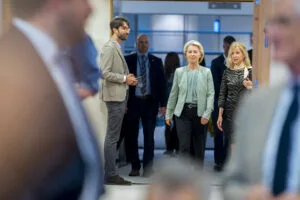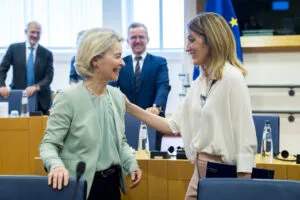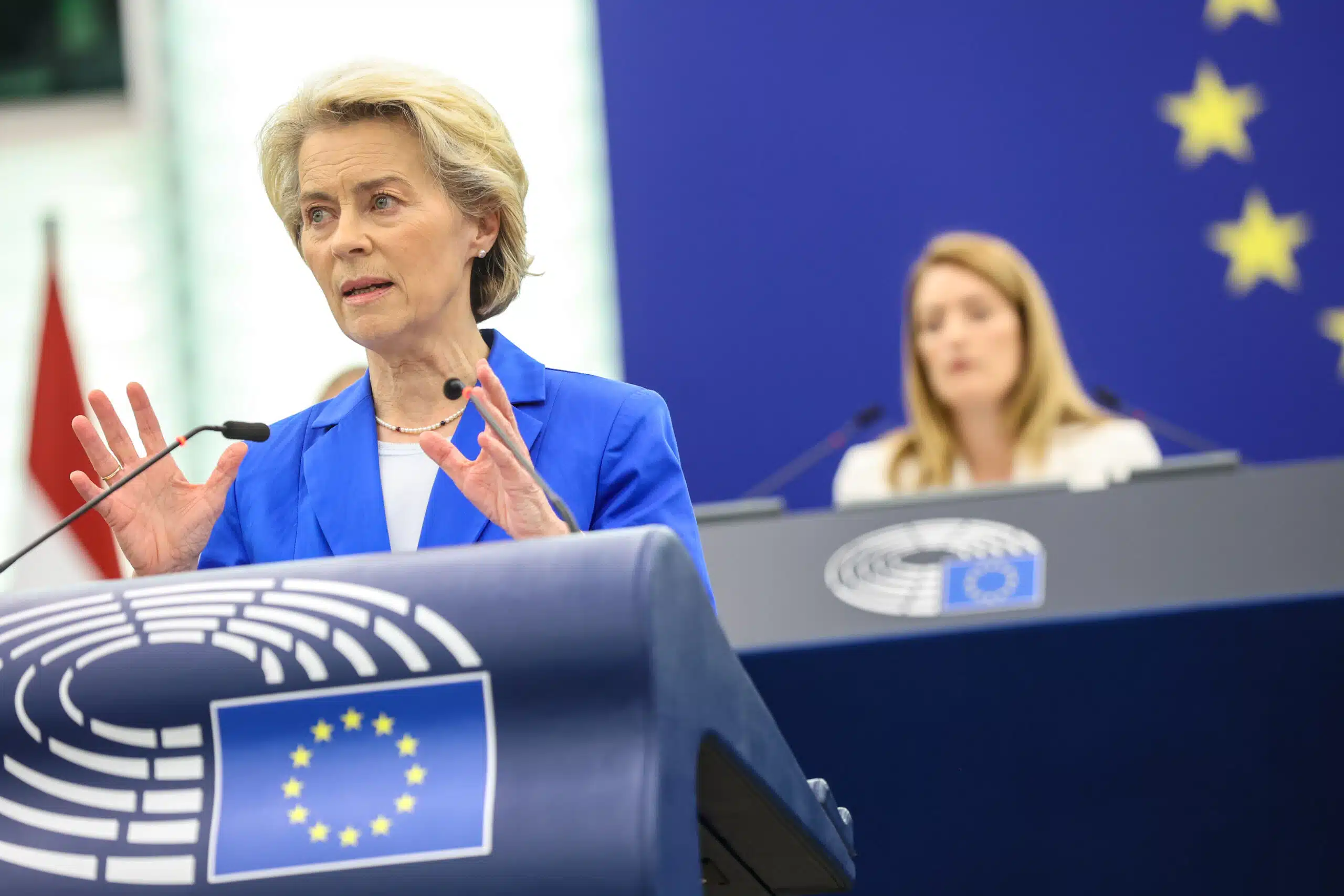Brussels – The tour de force has begun, and now it is time for Ursula von der Leyen to pull the strings of the parliamentary forces that will be able to support in just over two weeks her ambitions to succeed herself as head of the European Commission for another five years. “Important exchange of views with the chairwoman of the European Parliament, Roberta Metsola, and with the chairs of the political groups,” is the comment from the current number one of the EU executive at the end of this morning’s (July 2) discussion at the Conference of Group Chairs, which served as a basis for discussion of the “priorities of the next institutional cycle” before the crucial vote at the inaugural session in Strasbourg on July 18.

After receiving last Thursday (June 27) the European Council’s green light to her nomination as a candidate for the presidency of the European Commission, von der Leyen is now facing the hurdle of the European Parliament, where there is a majority, but less solid than expected for the vote to confirm the presidency of the EU executive. Because populars, social democrats, and liberals as of today can count on 400 seats—39 more than the minimum threshold—but the risk of turncoats in the plenary is particularly high, and these two weeks will be needed first of all to convince the 400 majority MEPs not to step back, but also to convince others. “I am committed to working side by side with the European Parliament to continue to deliver results for citizens and make Europe stronger,” von der Leyen assured.
In the 2019 election, the same majority had 444 seats, yet von der Leyen was approved by only 383 votes. It means that, compared to the majority on paper, 13.5 per cent of popular, socialist, and liberal MEPs had come up short (even more if one considers the decisive contribution of the 14 from the 5 Star Movement and the 26 from the Polish ultra-right from Law and Justice). Translated into the summer of 2024 (although times have changed, not the uncertainty), this would mean 54 fewer votes than the 400 provisional seats of the European People’s Party (EPP), the Progressive Alliance of Socialists and Democrats (S&D) and Renew Europe groups: 346 votes in favour, 15 fewer than the minimum threshold for election.

While the formation of the groups cannot yet be said to be complete—mainly because of the turmoil created in the right-wing camp after the announcement of the birth of the new group of “Patriots for Europe”—von der Leyen is looking in two directions: the 54 members of the Greens/Ale group and some (but not all) among the 83 members of the European Conservatives and Reformists (ECR) group. This is a delicate balance because opening up to the conservative right (prime suspects are the 24 elected from the ranks of Fratelli d’Italia) could open rifts with social democrats and liberals. O. On the other hand, a propping up by the Greens could result in a vote drain from the populars themselves. This is what von der Leyen is working on, and while waiting to figure out the composition of the right-wing groups between tomorrow and July 8, discussions are already underway with progressive forces and in particular with the Greens, with whom she met yesterday (July 1): “I think she would start a dangerous game the moment she starts drawing from ECR,” warned the co-chair of the Greens/Ale group, Bas Eickhout, speaking to the press at the end of the meeting: “Because maybe you can gain 25 deputies from the Italian delegation, but you lose about 20 from the S&D, and it would not be a stable majority.”
On the “stable majority” insisted strongly the co-leader of the Greens/Ale, a group that, despite a major setback in the June 6–9 European elections and a drop to 54 seats, has been calling for “responsibility” to support the majority for weeks. “You have to look at the political groups as a whole, and according to my calculations, the only possible stability is with the Greens,” Eickhout pointed out about the formal agreement to be made before the vote, provided that it does not open “to ECR or parts of it”. There is satisfaction, however, with the priorities for the next cycle listed by von der Leyen, particularly on the Green Deal: “I know that your party has not always been clear on this point, but you have stressed that you are in favour” of continuing what the von der Leyen I Commission will be remembered for. Priorities also include climate change, social Europe, prosperity, security, rule of law, democracy, “a very logical list,” concluded the Dutch MEP, who was echoed by the chair of the Progressive Alliance of Socialists and Democrats (S&D) group, Iratxe García Pérez: “She talked about the Green Deal, competitiveness, the geopolitical role of the EU and other relevant issues; she introduced important issues for pro-European political forces.” At this point “we have to go into detail, but we will have the opportunity to meet with her separately,” the Spanish MEP anticipated.
English version by the Translation Service of Withub









